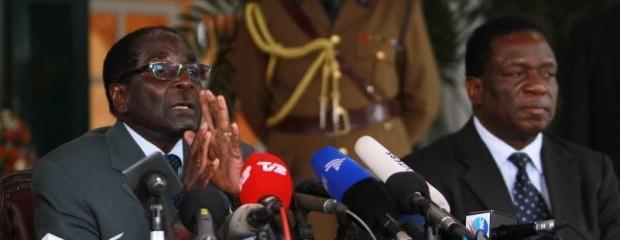The Time Has Come for Talks
*Posted on behalf of Philip Honour
The time has come for talks
Yesterday, the U.S State Department published a report on Human Rights Practice’s in Sudan. The report makes it clear that the Sudanese Government are failing dramatically to live up to their commitments to the civilian population in Darfur, but it also sheds a troubling insight on the larger role that the various Rebel factions are playing in the destabilization of the region.
In a year that saw at least 1600 people killed and thousands more displaced, abducted and raped, it is increasingly hard to distinguish between the government backed Janjaweed, implicated for acts of genocide in the past five years, and the Rebel movements spearheaded by the Justice and Equality Movement and the Sudanese Liberation Army. It is obvious though, that the victim in all this, is the Darfuri civilian.
The U.S State Department report observes that "the [Sudanese] government are committing political motivated killing in connection with the conflict in Darfur", a fact that will be used by the rebels to justify their increasingly violent intifada that seems more indiscriminate every day. The last thing Darfur needs, is for the Sudanese Government to be able to use the constant attacks from rebel faction’s to allow the International Community, particularly Sudan’s allies such as China and Russia, to be more lenient on Khartoum’s actions.
Rather than forcing Khartoum to face up to their own responsibility to cease the daily aerial bombardments and to disarm the Janjaweed that they themselves finance, the rebel groups are allowing the Sudanese regime the chance to divert attention away from their own human rights abuses by using the same techniques that they publicly condemn.
For this reason, before they risk the alienation of the whole of the International Community, and for the sake of the UN peacekeeping mission, it is important that peace talks start at the earliest opportunity. The need to wait for the full deployment of UNAMID, as cited by the Sudanese Liberation Army as a reason to boycott the last set of talks in Libya, can no longer be used as an excuse.
Before this can happen, it is crucial that a ceasefire is instigated and respected by all conflicting parties. This could be independently monitored and should include the implementation of a no-fly zone. This would mean that, as well as forcing the Sudanese Government to stop their aerial bombardment, Humanitarian Aid Flights could begin again without fear of confusion with military aircraft and a steady supply of food aid could begin to flow back into the IDP camps in Darfur. The authority of the UNAMID Police force should also be publicly recognised and respected by all sides to ensure that Humanitarian relief reach civilians without fear of vehicle hijack or abduction.
The International Community should in turn use the offer from the Netherlands earlier this year to host the latest round of peace talks as a catalyst to reaffirm their support for a diplomatic and political solution.
It is also just important that all sides in this conflict, who seem more than happy to quote International Law when it suits their need, make a commitment to ceasing the widespread use of child soldiers and follow through on their commitment with UNICEF to identify the location of child soldiers and let them return to their homes and villages. All sides should also reaffirm their commitment to the ICC and hand over suspected war criminals to be tired under International Law.
As we approach the first anniversary of the UN resolution that saw the deployment of the largest peacekeeping mission in history, it is important that all sides recommit to supporting and not working against the international community’s efforts to bring peace to the region, something that all sides say is their overall goal.
It is also the international community’s responsibility to provide an opportunity for this to happen by supporting and accepting the offer by the Netherlands of a neutral space. As the violence intensifies and the evidence that the fighting is spilling over the border into Chad, there has never been a more urgent time and need for the implementation of a renegotiated, respected Darfur Peace Agreement.
Philip Honour is a writer and campaigner based in London. He has contributed to a number of publication’s and media outlets on the subject of Darfur.
He is a member of the "Act For Darfur" coalition and the founder of the "50 Dreams For Darfur".






